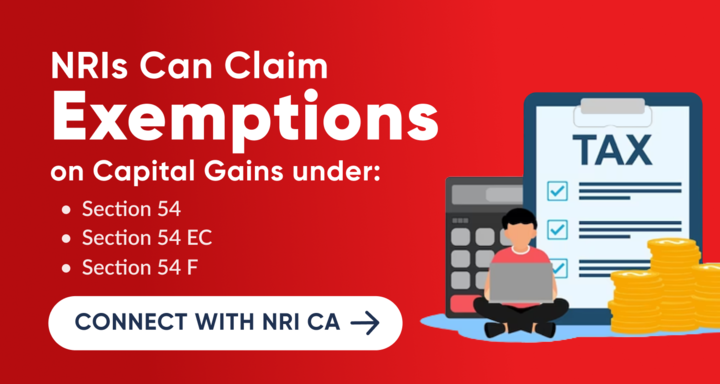Section 195 of the Income Tax Act, 1961, outlines the provision for TDS in cases where an individual makes a payment, such as interest or any other non-salary amount, to a Non-Resident Indian (NRI) or a foreign company. NRIs, who earn income in India, are also required to file their tax returns in India. Additionally, they have the option to claim the TDS amount deducted when they file their tax returns. Continue reading for further information regarding Section 195 of Income Tax Act.

About Section 195 of Income Tax Act
Section 195 of the Income Tax Act, 1961 (ITA) outlines the provisions regarding Tax Deducted at Source (TDS) applicable to Non-Resident Indians (NRIs).
Section 195 of the IT act provides comprehensive guidelines about TDS applicable to NRIs on payments made by them. It specifies the tax rates and deductions relevant to business transactions carried out by NRIs. It is mandatory to furnish the certificate of remittance while making such payments. Section 195 also outlines measures to prevent revenue loss arising from any tax liabilities of NRIs by deducting the appropriate amount from their source payments.
Who Should Deduct Tax under Section 195 of Income Tax Act?
Under Section 195, any individual or entity, regardless of their residency status, who makes a payment that is subject to taxation in India to an NRI must deduct tax. These individuals are:
- Residents
- Non-residents
- Hindu Undivided Families (HUFs)
- Partnership firms
- Other non-resident Indians
- Foreign companies, or
- Artificial juridical persons (e.g., corporations, government agencies, or non-profit organizations)
It is important to note that this requirement applies to payments other than salary or interest covered by sections 194LB, 194LC, and 194LD.
Threshold Limit to Deduct TDS Under Section 195
Under Section 195, there is no specific threshold limit for deducting Tax Deducted at Source (TDS). However, it is crucial to note that the deduction of tax should only occur when the payment made to a non-resident is subject to taxation in India. As a result, no tax should be deducted if the income is exempt or falls under a category that is not taxable according to the Income Tax Act, unless explicitly notified by the government.

Tax Deducted Under Section 195 of IT Act
TDS is deducted based on the following rates, whichever offers higher benefits to the payee:
- Rates specified in the Finance Act of the relevant year.
- Rates specified in the Double Taxation Avoidance Agreement (DTAA) between India and the non-resident’s country of residence.
Please note that the rates mentioned in the Finance Act are subject to an additional surcharge and education cess of 4%. However, the rates specified under DTAA do not require the inclusion of surcharge and cess.
Section 195 of Income Tax Act: TDS Rates
The TDS rates are as follows:
| Particulars | Rates |
|---|---|
| Income derived by a non-resident Indian (NRI) from their investments. | 20% |
| As per Section 115E, long-term capital gains from the transfer of:Shares of an Indian company.Debentures and deposits issued by a public company in India.Securities issued by the government.Listed shares and securities, as defined in Section 112A, which are subject to long-term capital gains tax. | 10% |
| Long-term capital gains derived from listed shares and securities as defined in Section 112A. | 10% |
| Long-term capital gains from the sale of property, where Tax Deducted at Source (TDS) should be deducted based on the sale value. | 20% |
| Short-term capital gains under section 111A. | 15% |
| Interest payments on loans obtained in foreign currency. | 20% |
| TDS on payments made to NRIs for technical services. | 10% |
| Royalties and fees for technical services payable by the Government or an Indian entity. | 20% |
| Income from various forms of games, including card games, lotteries, crossword puzzles, and similar activities | 30% |
| Rental Income from House Property | 30% |

Steps for Deducting TDS under Section 195
Given below are the steps for deducting TDS under Section 195 of Income Tax Act:
- Prior to deducting TDS under Section 195, the buyer is required to provide their Tax Deduction Account Number (TAN) number. To obtain the TAN, the buyer needs to submit Form 4B to the Income Tax department. Additionally, both the buyer and the NRI seller should have their PAN (Permanent Account Number) numbers for completing the submission of Form 49B.
- TDS must be deducted when making payments to the NRI. The transaction contract should include details such as the applicable TDS rate and the corresponding amount.
- The TDS amount deducted by the buyer should be deposited through an authorized bank using a challan or a designated form number. This deposit can be made online and must be completed by the 7th day of the subsequent month.
- After depositing the TDS, the buyer is required to file their TDS returns. This filing should be done quarterly using Form 27Q, through financial institutions authorized by the Government of India.
- Following the guidelines, the buyer should adhere to specific dates for filing TDS returns. The filing dates for each quarter are as follows: June – July 15, September – October 15, December – January 15, and March – May 15.
- Once the TDS returns have been filed, the buyer can issue a TDS certificate to the NRI seller. It is important to provide this certificate within 15 days from the due date of filing the TDS returns for the respective quarter.
TDS Return and Certificates
To comply with the provisions of Section 195, any individual or entity making a payment to a non-resident is required to obtain a Tax Deduction Account Number (TAN) and deduct tax at the applicable rates. The withheld tax amount must be deposited with the government within the specified deadlines, using the payee’s PAN as a reference. Additionally, the payer is obligated to submit the TDS return in Form 27Q by the quarterly deadlines and issue the non-resident with a TDS certificate in Form 16A.

Non-Compliance of Section 195
If TDS is not deducted or not deducted in accordance with the provisions of the Income Tax Act, 1961, the person responsible for making the payment will bear the consequences, including the payment of the tax that should have been deducted, along with interest and penalties imposed by the Income Tax Department. The implications of non-compliance with Section 195 of the Act are outlined as follows:
- Failure to deduct TDS will result in the disallowance of the expense under Section 40(a)(i).
- If the deducted tax is not deposited within the due date, interest at a rate of 1.5% per month or part of the month will be levied, calculated from the date of deduction to the date of deposit.
- If the deducted tax is not paid at all, a penalty equal to the amount of TDS will be imposed.
- In the case of insufficient deduction of TDS, a penalty equal to the difference between the actual amount of TDS deductible and the amount deducted will be levied.
It is important to note that these consequences serve as a reminder of the importance of complying with the provisions of Section 195 to avoid any financial and legal repercussions.
Conclusion
Section 195 of the Income Tax Act (ITA) pertains to NRIs and provides specific rates and deductions applicable to them. This section primarily focuses on tax rates and deductions related to transactions involving NRIs. The income generated from these transactions is subject to taxation under the Income Tax Act. To ensure proper deduction of Tax Deducted at Source (TDS) for non-residents, it is crucial to adhere to the steps outlined in Section 195. By following the guidelines provided, the process of deducting TDS can proceed smoothly.
Contact SBNRI
Due to a complicated tax system and recurrent amendments, understanding tax laws can be confusing and NRIs may be subject to additional fees or miss claiming deductions and other benefits. At SBNRI, we understand this struggle. You can download SBNRI App to connect with our NRI Tax Experts to know more about new TDS/ TCS rules for NRIs. You will also get end-to-end assistance related to NRI tax filing.
SBNRI will also help you get a lower TDS Certificate. You can also click on the button below to ask any questions. Visit our blog and YouTube Channel for more details.



